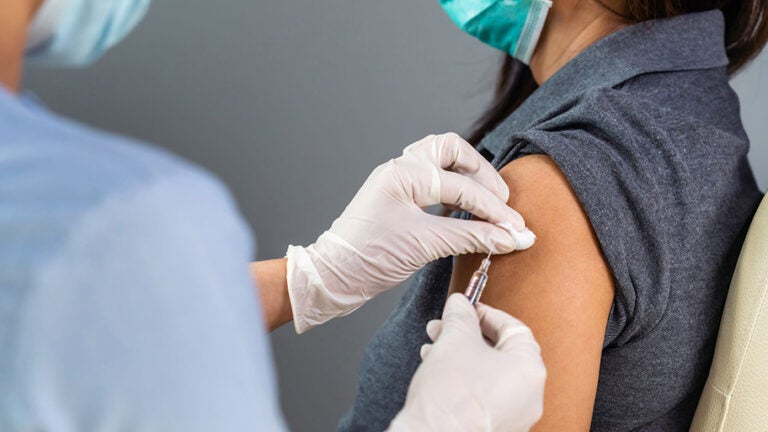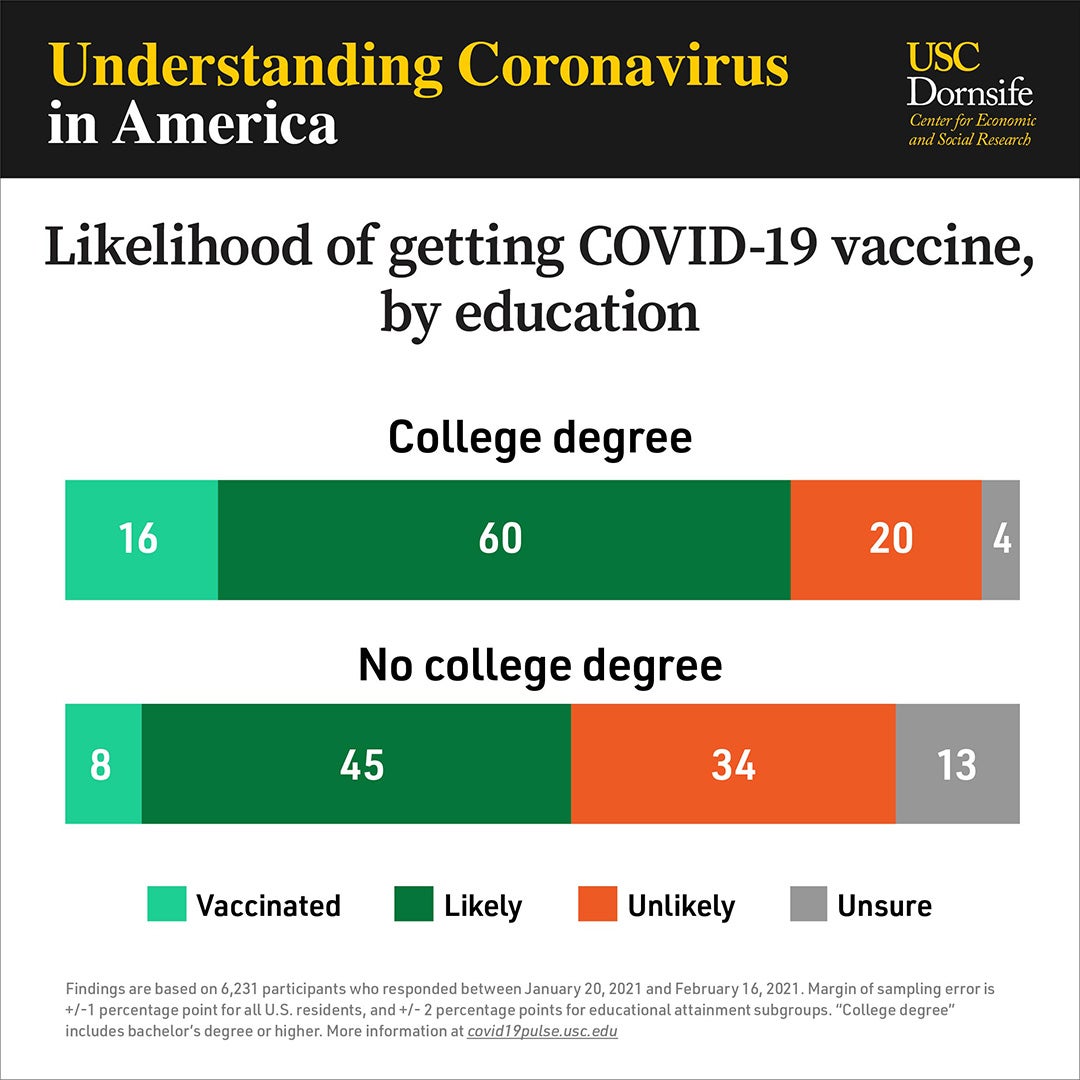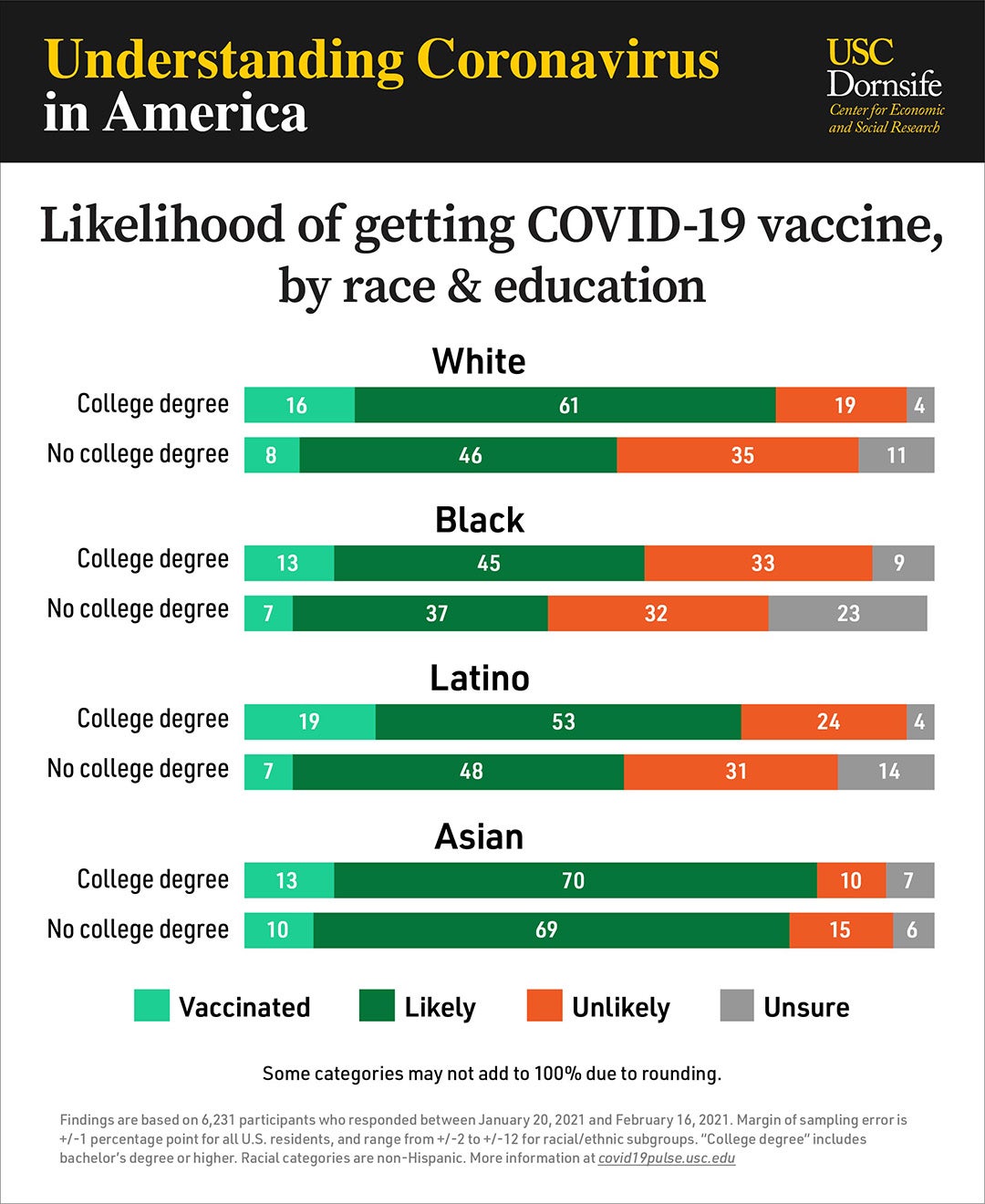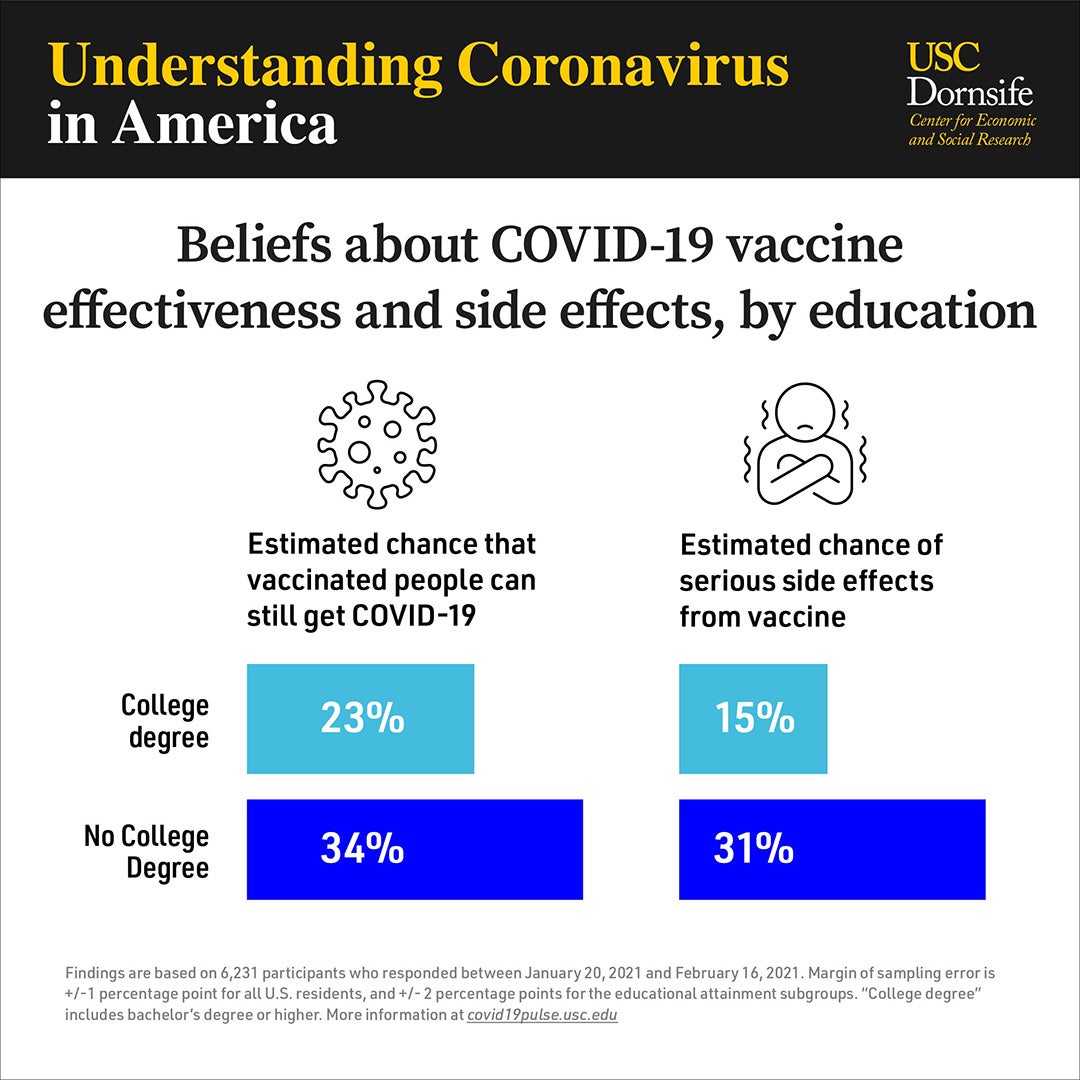
Education is now a bigger factor than race in desire for COVID-19 vaccine
New findings from the Understanding Coronavirus in America survey reveal that when it comes to attitudes and beliefs about the COVID-19 vaccine — from willingness to get the vaccine to knowing someone who has been vaccinated to the perceived risks of side effects — there is a substantial gap between more- and less-educated U.S. residents.
Researchers with the Center for Economic and Social Research (CESR) at the USC Dornsife College of Letters, Arts and Sciences found that more than 3 out of 4 U.S. adults with at least a bachelor’s degree have already been vaccinated or plan to be, compared to just over half of those without a college degree. That’s a change from earlier in the pandemic, when level of education played less of a role in people’s willingness to get a COVID-19 vaccine.
“Results of our surveys earlier in the COVID-19 pandemic — before vaccines were approved — indicated that race and ethnicity would play a greater role than education level in people’s willingness to get the vaccine,” said Jill Darling, survey director for CESR’s Understanding America Study. “But one year into this pandemic, with vaccines now being rolled out across the U.S., education level has become a greater factor than race.”
Racial differences in vaccine hesitancy persist
While gaps between college-educated and non-college-educated U.S. residents are found across racial and ethnic groups, some differences in willingness to get a COVID-19 vaccination persist.
The share of adults without a college degree who say they are unlikely to get vaccinated is about the same among Black and white people. But the share of adults without a college degree who are not sure about their likelihood of getting vaccinated is much higher among Blacks than whites.
There’s only a small gap in willingness to get the vaccine between Asian Americans with and without a college degree.
“What we find driving the educational differences, along with racial and ethnic differences, in vaccine hesitancy is lack of trust in the vaccine development and approval process,” said Kyla Thomas, associate sociologist at CESR. “Our findings indicate that, in addition to tailoring vaccine awareness campaigns to high-risk groups, policymakers should emphasize the safety and effectiveness of COVID-19 vaccines particularly to those without college degrees.”
Education level plays a role in estimating vaccine effectiveness and risks
On a range of measures related to vaccine experiences and attitudes, including assessing both effectiveness and the risk of serious side effects, people’s level of education plays a large role. U.S. adults with at least a bachelor’s degree view the vaccine as much safer and more effective than those with less education.
About the survey
The data was collected from participants in the Understanding America Study, a nationally representative, probability-based online panel of adults who answer tracking survey questions every two weeks.
More information about and from the survey is available at covid19pulse.usc.edu.


